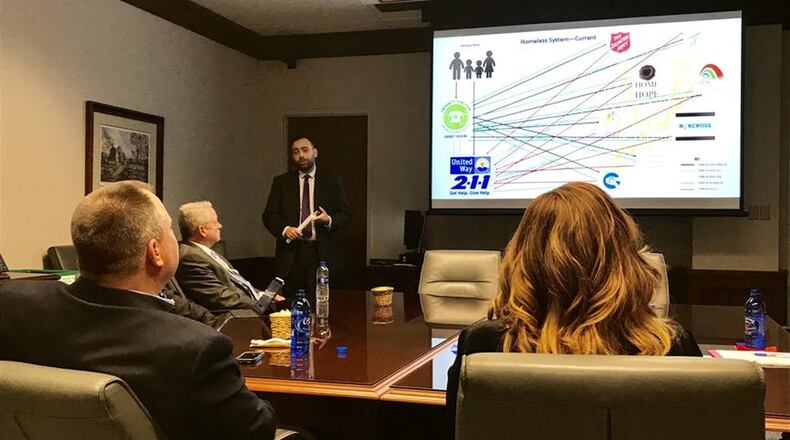Gwinnett officials allocated nearly $1 million on Tuesday to the organization that hopes to bring a pair of homeless shelters to the county.
The $950,000 awarded by county commissioners will go to the new HomeFirst Gwinnett initiative. The taxpayer dollars will be used to help HomeFirst reach a number of goals — including opening a new shelter for women and children near Norcross and another at a still-undetermined location.
The move marked a big step for a county government that has historically collected and distributed federal grant money to nonprofits that serve the needy but has rarely played a direct role.
In 1997, the county commission adopted a formal resolution declaring that providing services to the poor wasn’t its responsibility.
And while taxpayer dollars are being used to contribute to the initiative, Gwinnett Commission Chairwoman Charlotte Nash balked when asked if the county was getting into “the shelter business.”
“When dealing with social issues, our most common approach is to contract with non-profit organizations rather than trying to provide such services directly,” she wrote in an email. “Not only are non-profits typically more nimble in operations than local government, but they are more successful in raising funds from the private sector.”
Gwinnett has one of the largest homeless populations in metro Atlanta and has been without an emergency shelter since September, when the 11-bed SaltLight Center run by a local nonprofit closed. HomeFirst Gwinnett was created last summer and tasked with developing a more effective and efficient system for helping those in need of housing assistance.
The plan that has emerged includes establishing a “coordinated entry system,” which will help those in need better navigate the services available in the county. Multiple assessment centers would be built as central locations for that assistance to be provided — and include on-site shelters to provide immediate assistance to those awaiting longer-term help.
HomeFirst director Matt Elder said earlier this month that the group has already signed a rental lease for its first such center, which will operate at the former John Wesley United Methodist Church at 5320 Jimmy Carter Boulevard.
Elder said he hopes the facility — which will offer 20 shelter beds to women and children — will be up and running by June.
The goal is to have a second assessment center and shelter operational by the end of the year. Neither a specific location not a general geography have been identified for the second facility, Elder said.
“Our focus is on the system of service delivery, not the delivery of services,” Elder told county commissioners during a Feb. 5 briefing. “… What we’re trying to do is create an easier, more efficient system.”
In addition to the creation of assessment centers and shelters, the $950,000 general fund dollars that the county allocated Tuesday will cover things like the creation of an emergency housing assistance pool and a homelessness diversion program.
The general fund dollars that the county allocated will go to the United Way, which currently administers the HomeFirst program. But a new nonprofit group may ultimately be formed to run the coordinate entry system and its related programs, officials said.
HomeFirst has also received donations from corporations like Primerica and is actively raising its own funds. To date it has raised more than $420,000, in addition to pledged county funds.
Elder thanked the commission Tuesday afternoon and said its support as a founding partner of HomeFirst Gwinnett made its progress possible.
“Over the last seven months we have worked tirelessly alongside our community partners to develop plans and concepts that today can now become a reality,” Elder wrote in an email. “This award will not only allow us to build out the facilities and system components that will make our community response more efficient, but it also continues to demonstrate that the response to this issue must be community-based in order to make the impact we all want.”
About the Author
Keep Reading
The Latest
Featured




